Final Fantasy VII Rebirth is one of the most anticipated games of all time, particularly among fans of the original game. Given the high expectations, it’s hard to believe this game could live up to the hype. But what if I told you that it goes above and beyond?
Don’t Be Afraid of Change
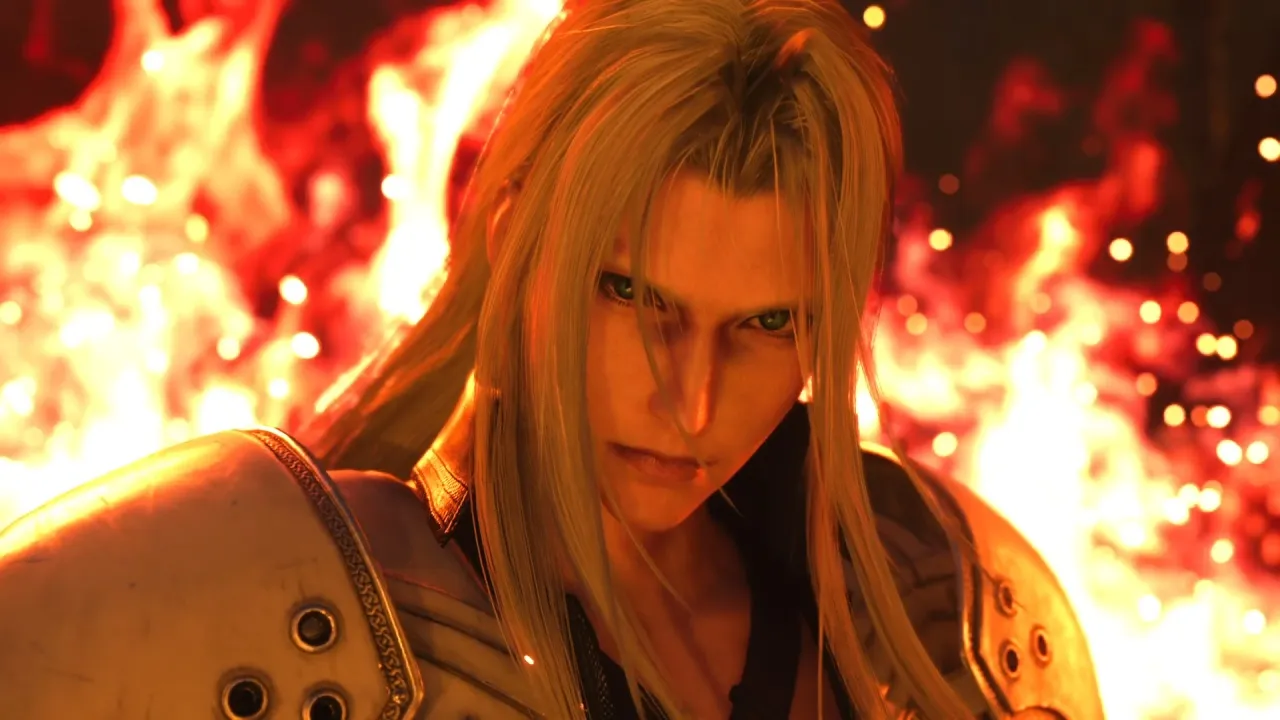
Final Fantasy VII Remake ends with Cloud, Aerith, Tifa, Barret, and Red XIII crossing Destiny’s Crossroads and facing the never-ending blue skies outside Midgar. After a harrowing battle against Sephiroth, the party learns that Sephiroth plans to destroy the entire planet. However, thwarting Sephiroth must be done while being hunted by Shinra after being labeled as the most wanted terrorists in the world.
This game takes you for a ride. It begins with the Kalm Flashback, offering a glimpse into Sephiroth’s god-like powers and showing the Childhood trauma that Cloud and Tifa share. Then, it introduces you to the Grasslands, an area that’s not too dangerous, where you’ll acquire a Chocobo, learn about Remnawave towers, and discover side objectives and odd jobs. While traveling around and doing side quests, the characters talk to each other and to Cloud, revealing more of their personalities, and creating a sense of companionship throughout the journey.
All the main beats of the OG are present here. You’ll empathize with Barret when he meets Dyne, and you might feel awkward when Cloud and Tifa seem to remember the same events differently. Yet, be prepared for surprises as well. While some epic moments might not hit you as hard this time, I wasn’t ready for some of the things Square Enix managed to pull off. As the developers said themselves, the game is meant to rattle your expectations to freshen the experience, even for fans of the OG, and they succeeded in doing it.
Things are pretty slow at first, but some of the story elements lurk around to tease players. Cloud’s erratic behavior, Sephiroth’s ever-present shadow, Shinra’s relentless pursuit of Avalanche, and events that don’t seem to make sense in the game’s timeline get more intense over time. I constantly felt the urge to find out what happens next and was often rewarded with more interesting revelations, higher stakes, and character development. There are moments of levity and silliness, but when things get real, they get real fast.
Character Development
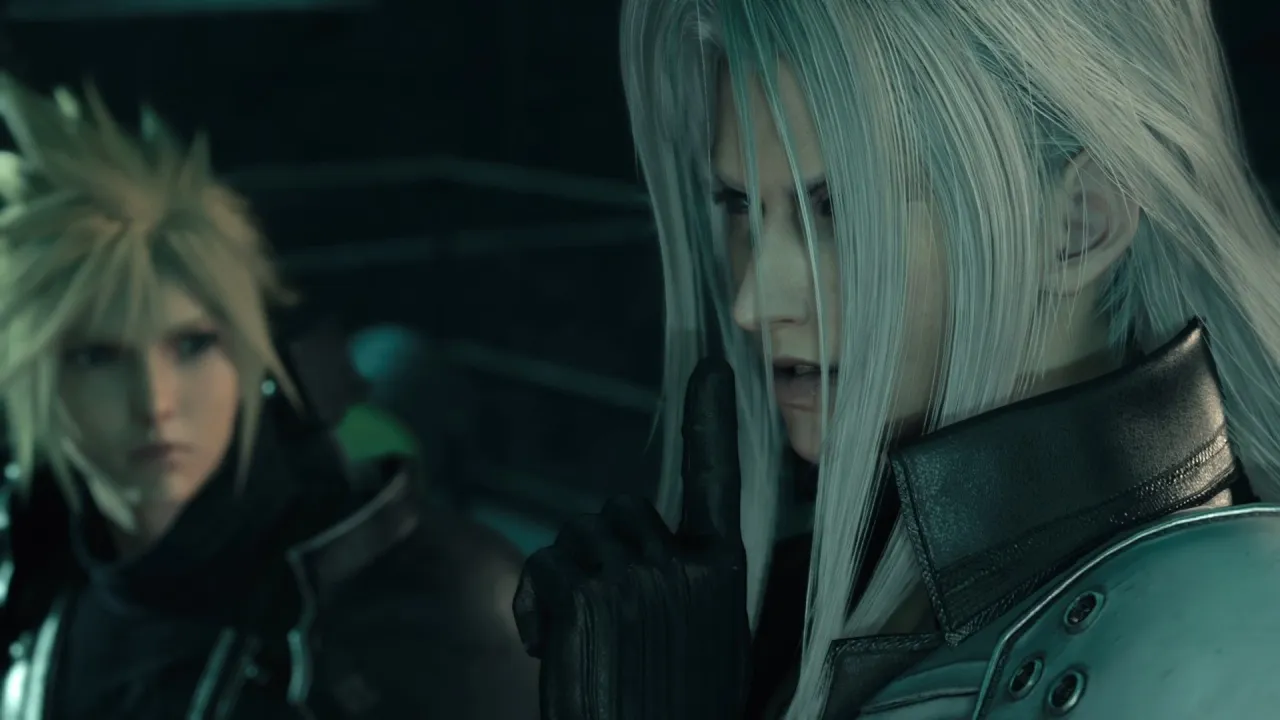
After spending over 100 hours with the characters in Final Fantasy VII Rebirth, I’ve never felt a stronger connection to RPG characters. They will fight, disagree, bicker, and have each other’s backs just as it’s expected from friends traveling together for so long. Character development is not only explored individually. The developers also wanted players to observe how the characters’ behavior evolves as a group.
If you pay attention, you might catch subtle moments like Yuffie and Barret being silly and playfully pretending to fight in the background while other characters are discussing something important. These moments are masterfully placed throughout the campaign, and some side quests, to help players see the party members as real people in ways that were not possible in 1997.
While character development and fleshing out their personality is nothing new in RPGs, Final Fantasy VII Remake pulls off something rather unique. What makes this game even better than others featuring similar group dynamics is that the whole team is around for most of the adventure. Even though your party has only three characters, the others will always be nearby. On top of that, there are moments in the game where you will take control of characters other than Cloud and use their unique abilities to solve problems, fight monsters, and push the story forward. This even happens during some side quests.
Considering that you start the game with five party members and end with seven, I find it mind-blowing. There clearly was an immeasurable amount of effort put into fleshing out each character individually and making them feel like real people and real friends instead of plot points or battle mechanics. When approaching the finale of this story, I had a clear understanding of each character’s feelings towards the others. That is all expressed in their theme songs, dialogue delivery, side quests, combat, and so many other things. It’s just too much and I love it!
The Whole Gang is Here
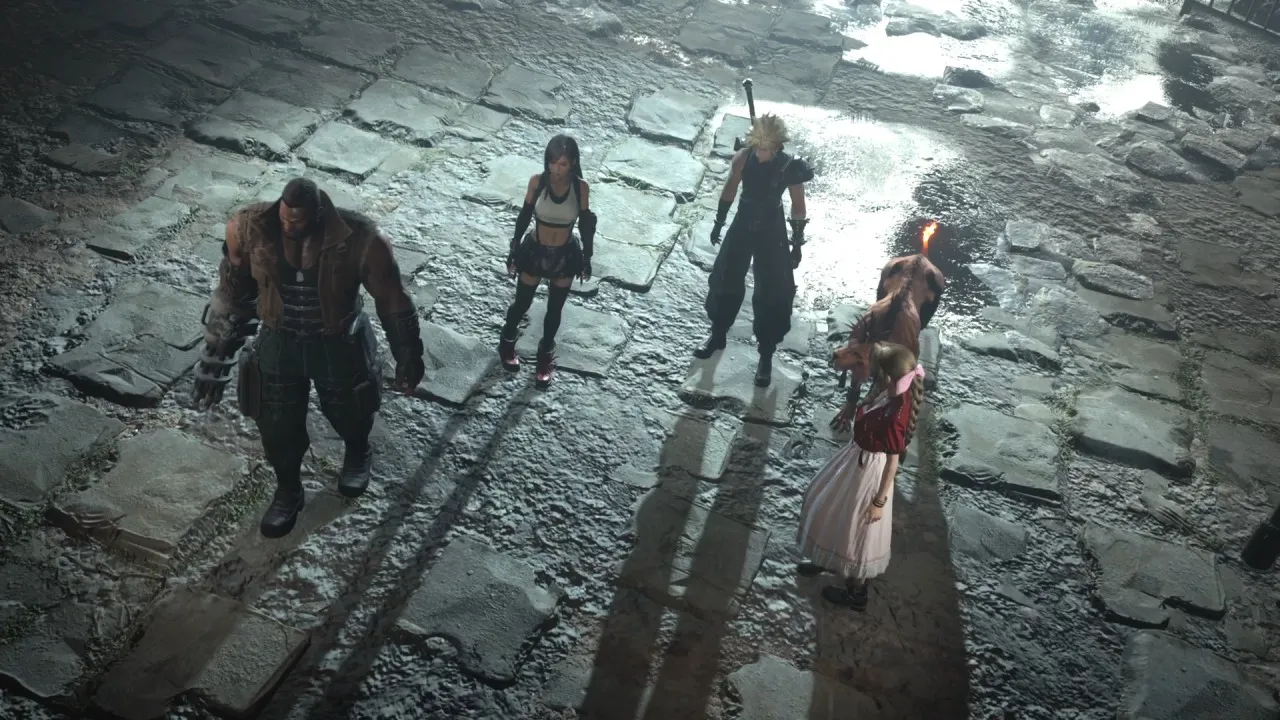
As a direct sequel to Final Fantasy VII Remake, you can expect Rebirth to have the same acclaimed combat gameplay seen in the previous game but improved. Characters now possess synergy skills that enable them to execute team-up attacks. The game features some of the coolest interactions between characters, elevating the combat to new levels of strategy, fun, and excitement.
For instance, Cloud can throw Tifa at a flying enemy, Barret can jump in front of Aerith to protect her from harm, and Aerith can use her magic to boost Red’s attacks. But there’s so much more, and that’s for you to find out. Figuring out the best way to use synergy skills and the best interactions between characters is one of the most fun additions to the game’s combat system. The visually stunning battles with cinematic transitions are still here and better than ever, but each action also feels cinematic and tactical. It’s just so much fun.
All characters now have perfect guard mechanics, which significantly increase their Limit Break bar and cause them to take zero damage from an attack. They also have special moves that can be performed out of a dodge without the Deadly Dodge materia required in Remake. For instance, Cloud now has a wind-blade attack that allows him to easily hit flying enemies. Tifa can immediately close the gap between herself and enemies while taking advantage of her incredibly effective dodge. It’s everything we’ve seen in Yuffie’s DLC, but enhanced and applied to all characters in the game
There’s more. Aerial combat has been significantly improved. Once a character is in the air, they can stay there, reaching Adventure Children levels of visually engaging battles. Some characters can directly jump onto flying enemies, while others might require the use of synergy skills to close the gap. But just the fact that we were given options and can more easily engage with flying creatures is definitely one of the best changes to the combat system.
Party dynamics also work a little differently now. While in Remake your party was defined by where you were in the story, such limitation is rarely present in Rebirth. Since the whole gang will be with Cloud for most of the journey, any party composition can be used, provided that Cloud is included. Final Fantasy VII Rebirth also allows for the setup of three party compositions and switching between them on the fly while exploring the world. Besides, during combat, we get to control all returning characters, including Red XIII and Yuffie, but also finally be able to play as the infamous, fortune-telling robot cat, Cait Sith.
An Amusement Park
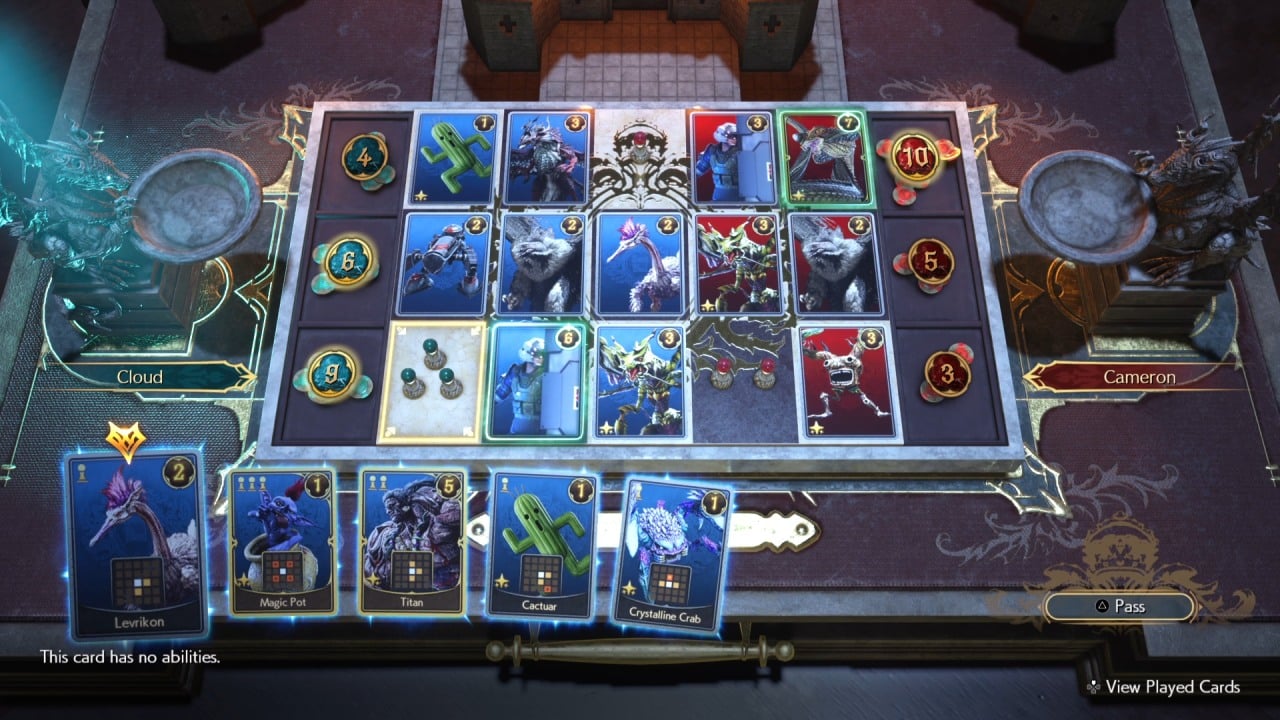
Final Fantasy VII Rebirth offers more than just fighting monsters and a quest to save the world. It is a story about the bonds of friendship and having fun with the people we love while we have them. The game is extremely self-aware in that aspect and others. It fully embraces its goofy side and the fact that this is indeed a video game.
You might see Cloud playing a card game against a dog, being tricked into doing someone else’s monster hunting work, being challenged to a duel in an in-game arcade game, or doing silly side quests about retrieving lost pets. That said, I appreciate that the developers clearly put some effort into making this side of the game fun and engaging, sometimes featuring mechanics that are entirely unique to a specific side quest.
In addition to the occasional linear dungeon and the game’s satisfying battle system, there are numerous side quests and mini-games. On top of the mini-games you’ve played in Remake, you also have Chocobo Racing, G-Bike, Frog Leap, 3D Brawler, and many others. Many of these activities are designed to encourage more time spent with party members, while others are just there to provide players with more things to do and more ways to have fun.
On top of all that, you can also get invested in Queen’s Blood. This unique card game featured in Final Fantasy VII Rebirth is quite deep. I was frequently spending Cloud’s money on booster packs, defeating players to get a special card for them, and following a unique quest line to become the best Queen’s Blood player on the planet. All that while looking for Sephiroth and trying to save the world.
Our Beloved Planet
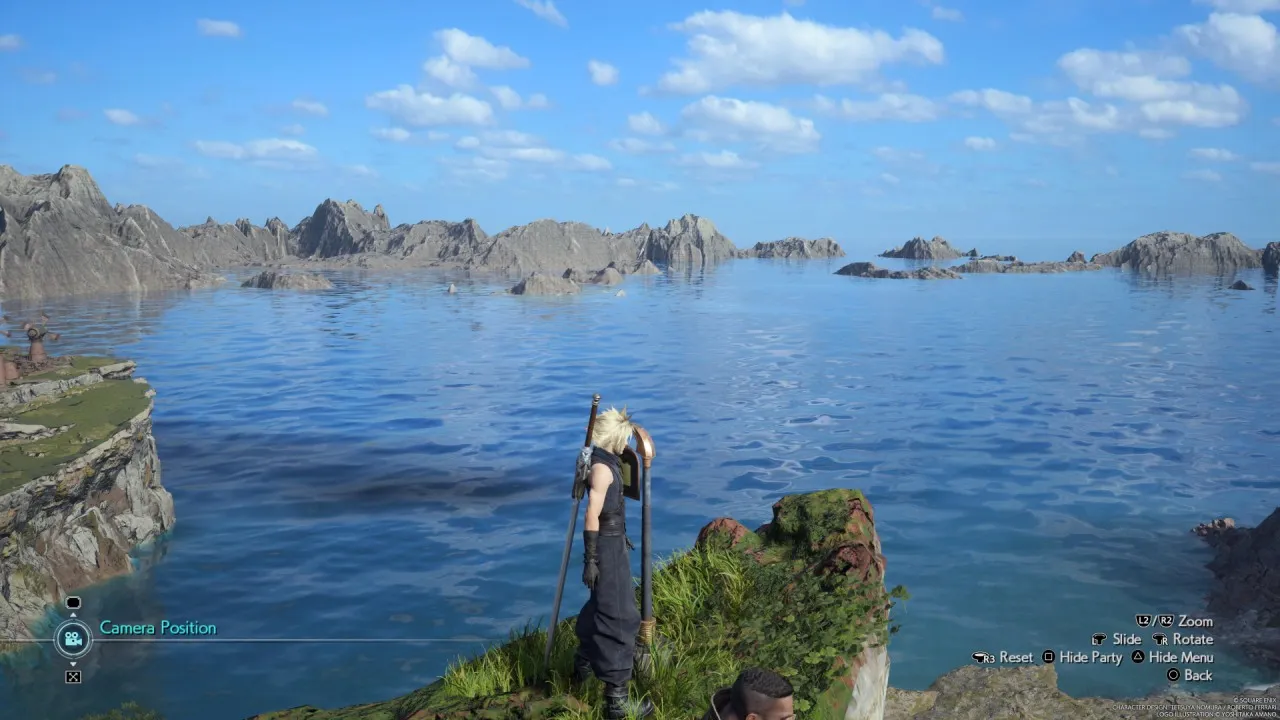
Players will spend dozens of hours in this fantasy world, so making it empty, barren, and uninteresting would be Square Enix’s greatest mistake. Final Fantasy VII Rebirth has huge interconnected regions, each with its own set of side quests, objectives, mini-games, and unique exploration mechanics. This planet was not designed to look familiar, either. Even relatively simple areas, like the Grasslands, have an odd, fantastical feel to them.
In the world of Final Fantasy VII, you’ll see giant, pointy mountains, rocks covered by flowers, giant mushrooms, and gargantuan failed Mako reactors. But there’s more. You’ll also get a glimpse of what civilization was like before Shinra. There’s a great deal of environmental storytelling in the world and much of it can be revealed with the completion of regional objectives and side quests.
I never felt like I had to complete these tasks to get a taste of the world and visit its most stunning locations thanks to how the main quest was designed. However, these are great opportunities for all players who want to learn more about the extinguished republic, get to know each party member better, unlock inaccessible areas of the world map, and spend more time with the game overall. Unlike Remake, Final Fantasy VII Rebirth takes advantage of a large variety of game mechanics and mini-games to enrich the player’s experience.
Rest assured that you will be doing much more than just running around and fighting monsters. Some side quests contain unique mechanics or bring back mini-games from Remake. Some players might not find all the optional content fun or interesting enough, but I doubt anyone will have many gripes. When the optional content is mostly good in a game that already provides a campaign spanning dozens of hours, complaining about the less interesting side quests seems like unnecessary nitpicking.
A lot of effort has been invested in making the exploration fun. Chocobos introduce new ways of traversing certain regions, having special abilities that allow them to reach areas otherwise inaccessible. At some point, the party will have access to vehicles as well, like the good ol’ Buggy. Upon arriving at a new region after completing the previous one, I often felt hesitant to explore the new area until the game introduced a new exploration mechanic.
In fact, that care is put in different aspects of each region. For instance, there’s more to Junon than unique Chocobo mechanics. Everything, from the way the area is designed, how you traverse it, its soundtrack, environmental storytelling, and culture, is significantly different from the Grasslands. I felt the same way every time I visited a new region. The main characters will also react differently to each location, further fleshing out their personalities. Like pretty much every element in the game, the way that the world of Final Fantasy VII Rebirth is presented was carefully crafted to tell you an epic story and flesh out its main characters.
Listen to the Cries of the Planet
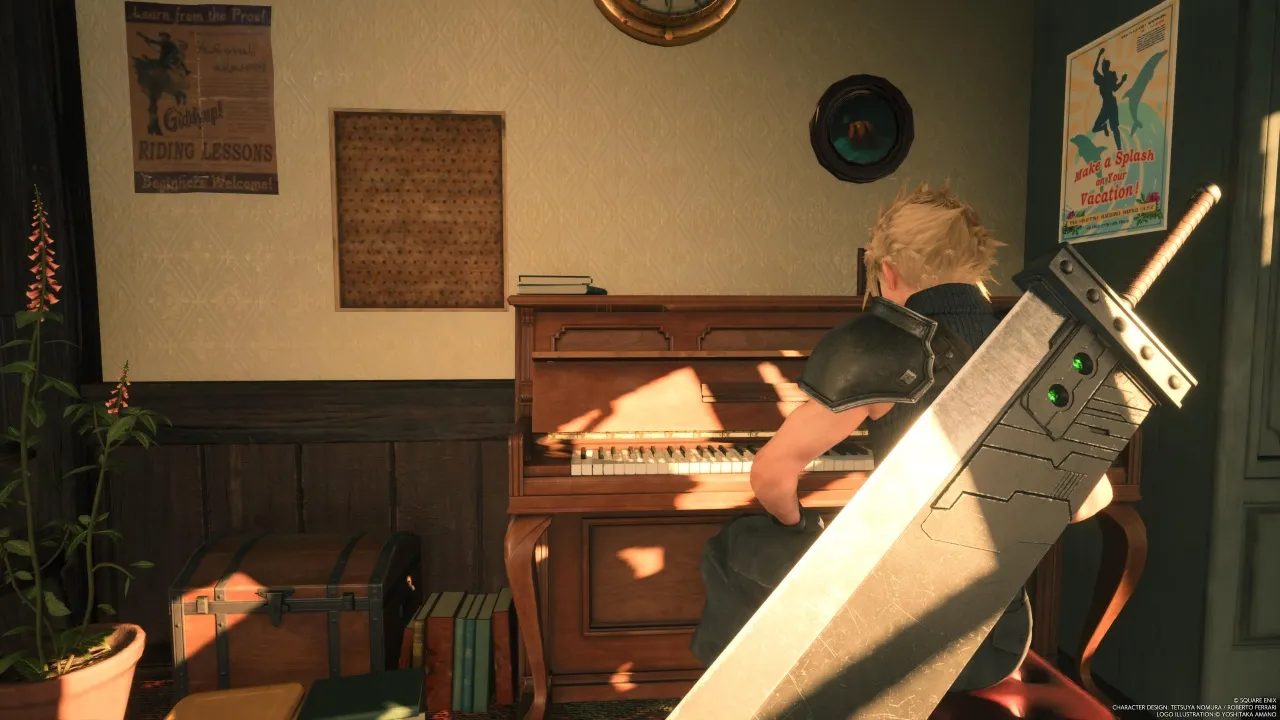
The game’s storytelling is elevated by the numerous songs featured. There are multiple songs for each area, with variations that correspond to the player’s actions. Approaching Midgar triggers Zack’s Theme, “The Price of Freedom.” Upon finding a Lifespring, you’ll hear the initial notes of the “Bombing Mission” song from the original FFVII’s opening, specifically the part that plays when the game reveals Aerith’s face. Every time a song starts playing, it likely evokes the emotions the developers intended.
The Final Fantasy VII Main Theme, which plays when you explore the Grasslands in Rebirth and the Overworld in the original game, was given a special arrangement that overlays it when you’re fighting fiends. The composer used the game’s battle theme as a countermelody, hitting that part of our minds that knows we must draw the Buster Sword. Every single song that plays when you’re exploring a region has received the same treatment. While not everyone may have the musical ear to pinpoint the specific changes, the impact of these variations is certainly noticeable.
Even the Chocobo theme varies by region, adapting the instruments and tempo from the theme songs of each region when you’re riding your Chocobos. But that’s just one example of the many song variations featured. I can’t recall any other project so dedicated to immersing players, particularly long-time fans, by expanding the game’s music while consistently paying homage to its origins. Rebirth’s soundtrack is an impressive achievement in itself as a realized concept, but far more significant and far more impressive as a musician’s feat.
A 9th Generation Game
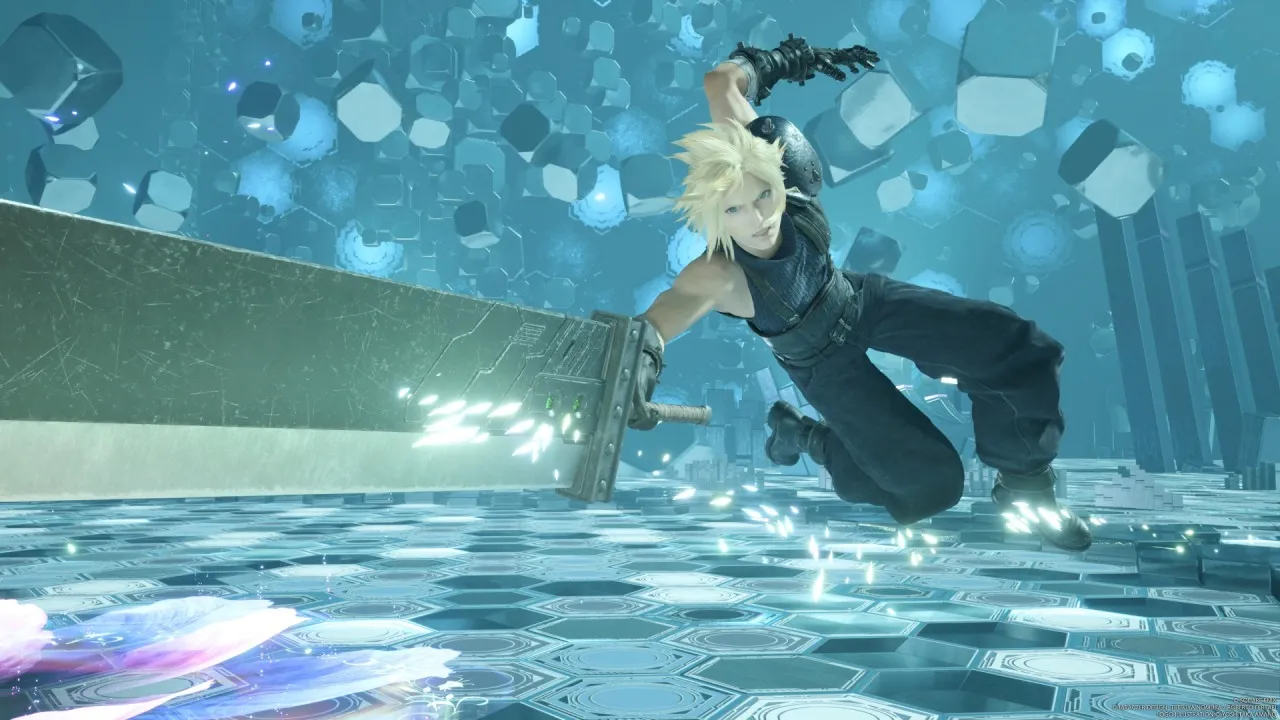
The fact that Final Fantasy VII Remake was playable on PS4 was already an extraordinary feat by Square Enix. The character models, lighting, and sense of scale represented in that game were something else, and Rebirth has all that, just bigger and better. That said, it’s clear that a more powerful console was required to make Final Fantasy VII Rebirth a reality. In fact, at times, it’s fair to say that even the PS5 cannot handle the developers’ vision for the game.
I played the game in Graphics mode, and I can’t imagine myself playing it any other way. Although 60 frames per second is nice, it’s worth noting that Final Fantasy VII Rebirth is not an action game, it’s a hybrid game that features real-time action and battle commands akin to old-school turn-based JRPGs. Players don’t have to rely heavily on quick reactions to play it and defeat the enemies. After trying both modes for a while, I was more than used to Graphics mode and the gorgeous visuals of the game.
Going back to Performance mode was never enough for me to appreciate the Grasslands, Junon, and the many other beautiful areas of this planet. That said, Performance mode did manage to handle the game at 60 frames per second when I tried it. So, if you’re more worried about having the smoothest gameplay possible, I don’t think you’ll be disappointed.
Being an Unreal Engine 4 game, Final Fantasy VII Rebirth may exhibit some texture pop-ups from time to time. That said, I was so immersed in the game, its fantasy world, and its beauty that I barely noticed anything strange besides a few random texture issues in the open world. I haven’t encountered any bugs or glitches at all. The developers took their sweet time to polish this game.
The Verdict
I didn’t know what to expect when I started playing Final Fantasy VII Rebirth. But now, after playing the game for over 100 hours, I even feel like I should apologize to the developers for ever doubting that they could deliver something that would please a bitter fan of the OG like myself. Final Fantasy VII Rebirth evoked all kinds of emotions in me, made me see my low-poly childhood friends as real people, and allowed me to once again be part of a grandiose, fate-challenging, god-defying adventure that I haven’t experienced since the PS1 days.
Final Fantasy VII Rebirth is a love letter to the original game. It acknowledges everything that made the original so good and tries its best to make you feel the same way all over again. I don’t know how they will trump this game when making the third one, but I know that I’m more excited than I’ve ever been to see the conclusion of this trilogy and whatever else Square Enix might be cooking next for the franchise. Final Fantasy VII Rebirth is, by far, one of the best video games I’ve ever played.

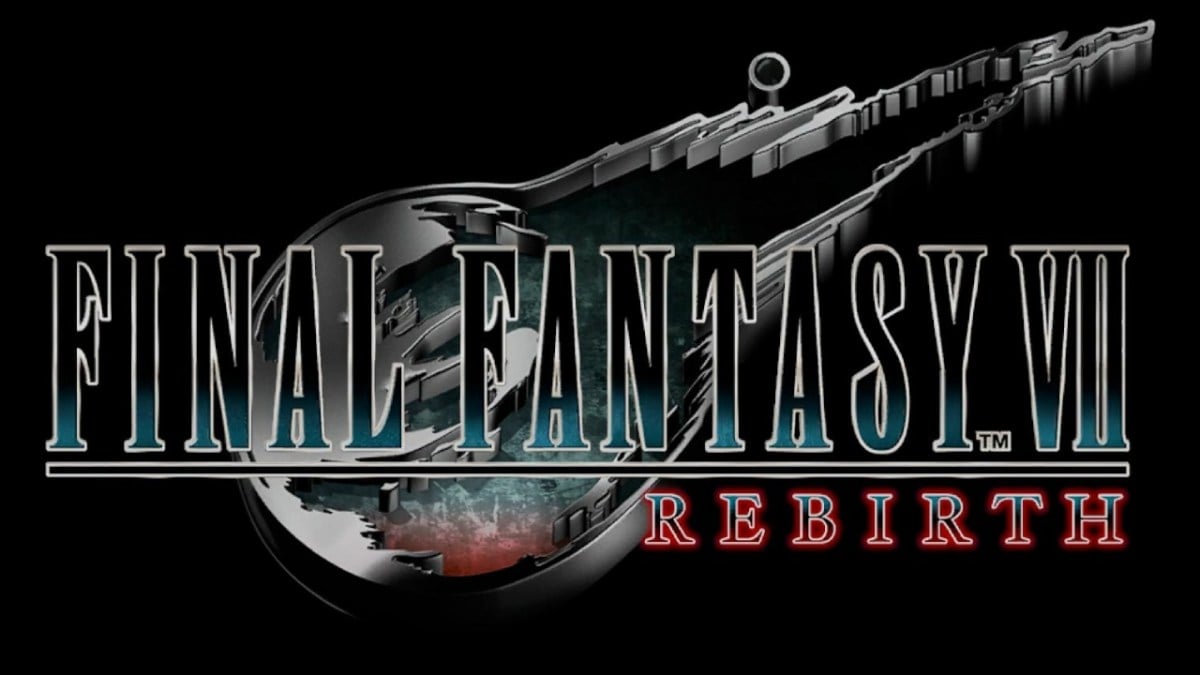
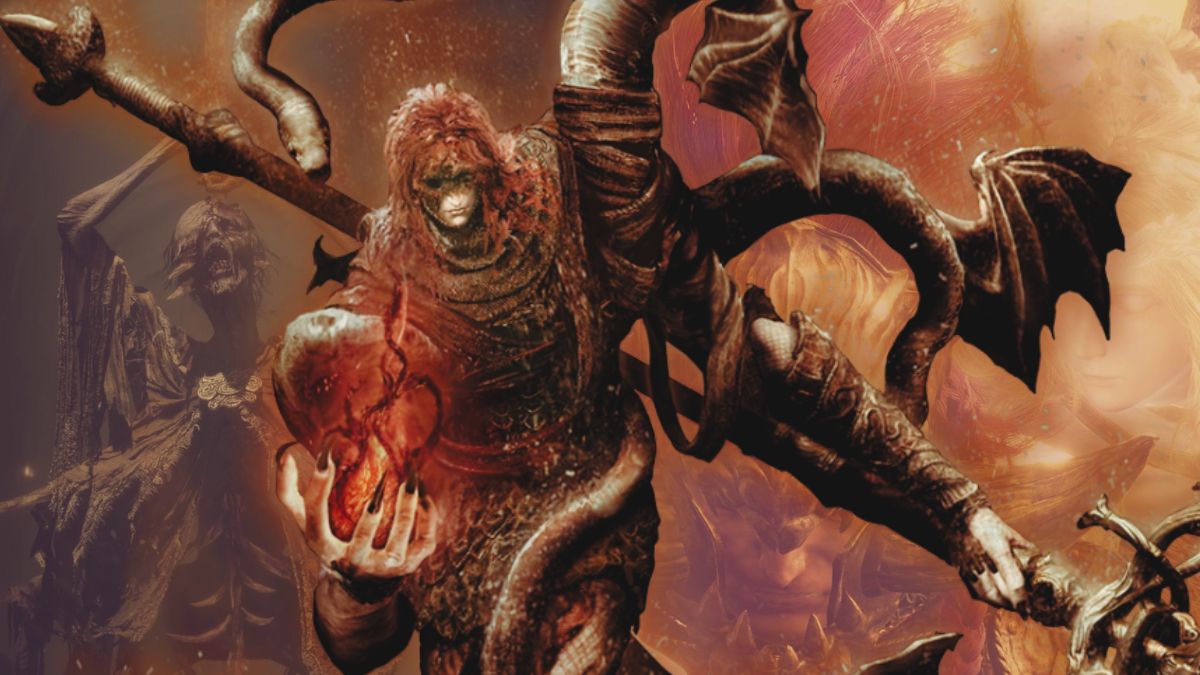
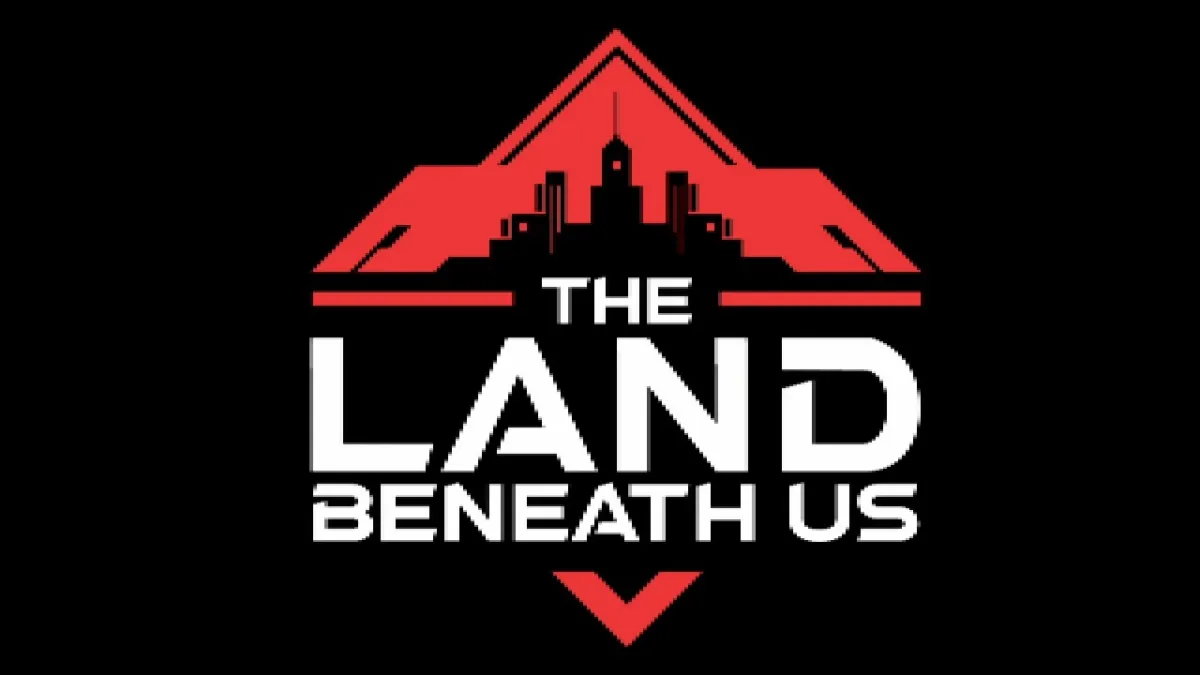
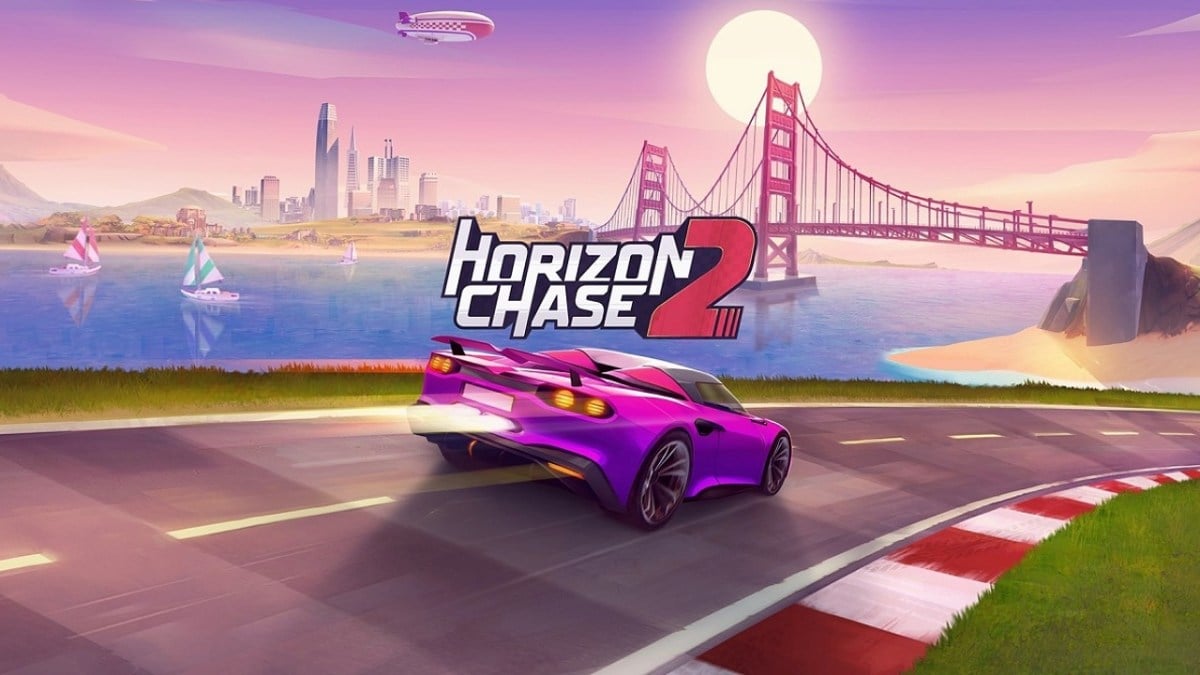
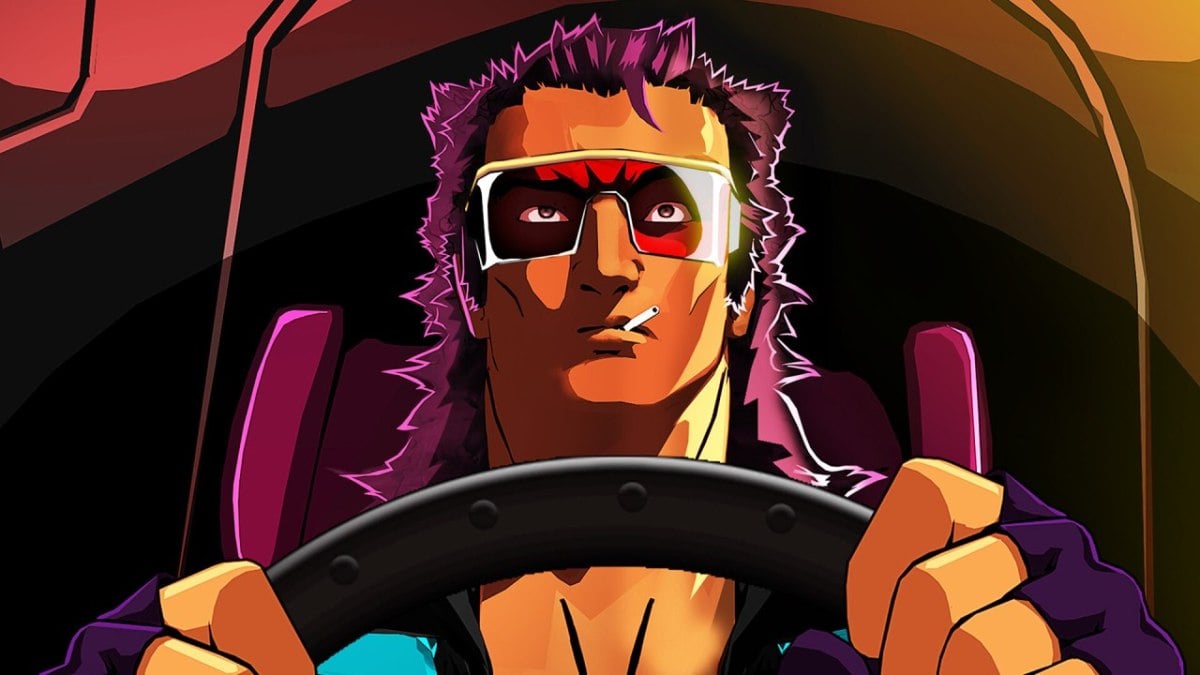
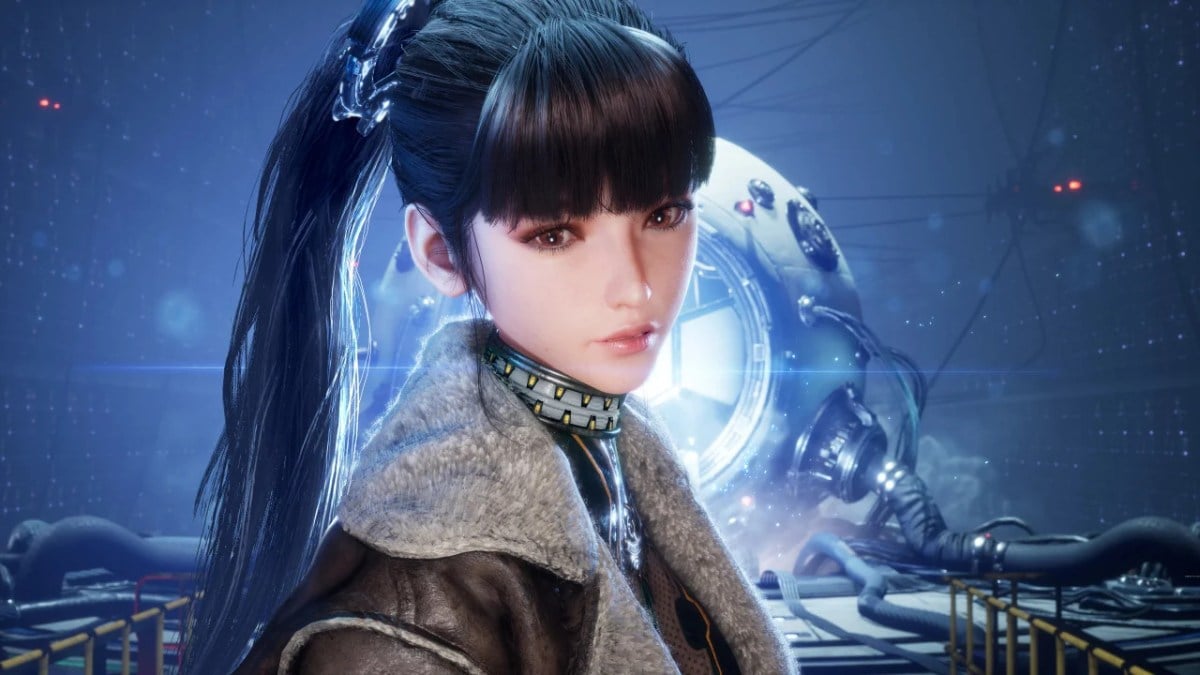

Published: Feb 22, 2024 08:00 am